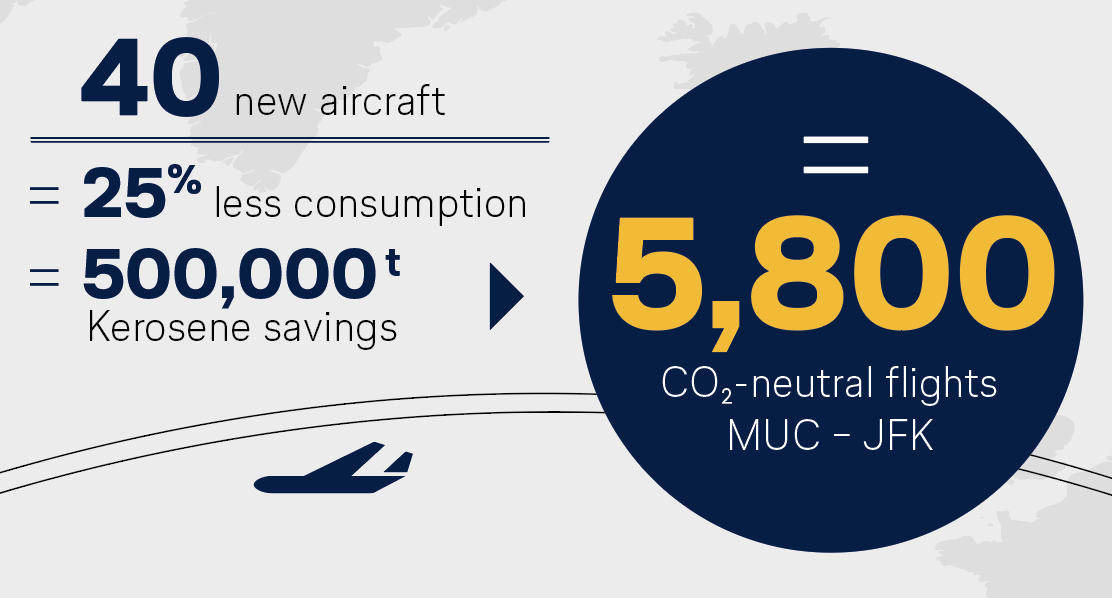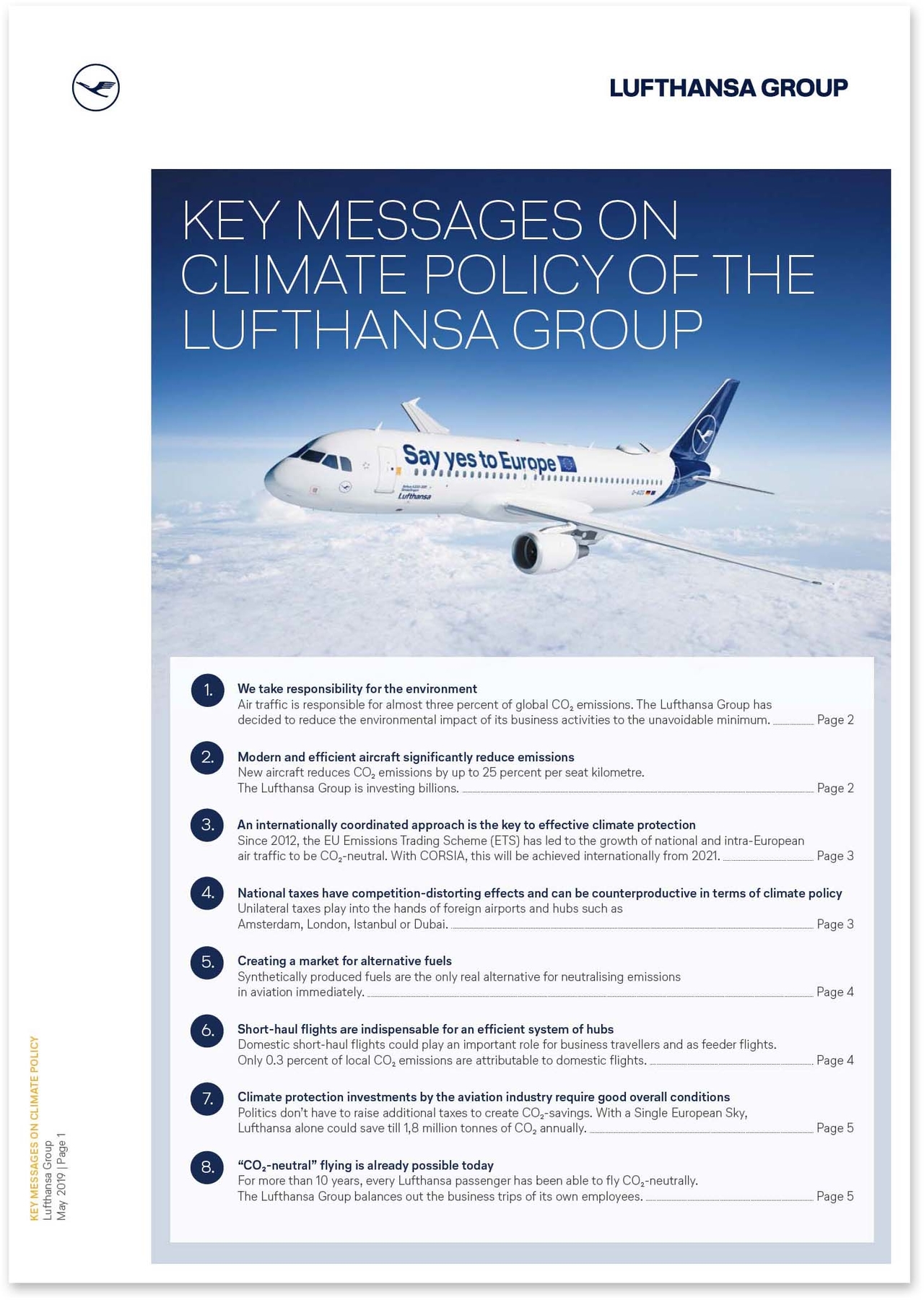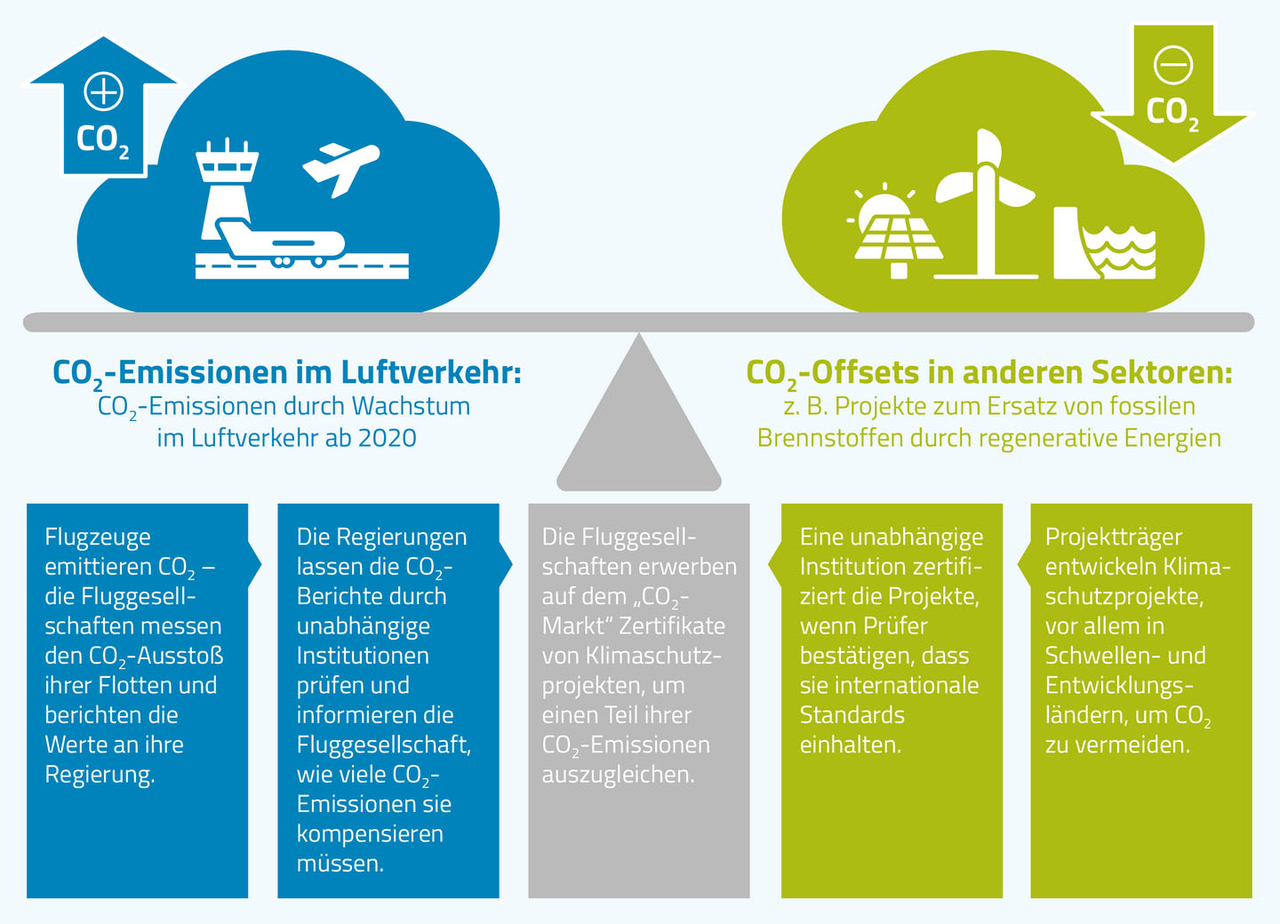Climate protection
Measures for greater efficiency are working
Aviation accounts for less than 3 percent of global CO₂ emissions. The industry is working intensively on achieving greater efficiency and less kerosene consumption. Politicians are called on to strengthen the global climate protection system in aviation – there is no comparable agreement for any other industry.
Billions invested for a better energy balance

In mid-March, the Lufthansa Group ordered 40 long-haul Airbus A350-900 and Boeing 787-9 aircraft. They consume about 25 percent less kerosene compared to four-engine aircraft. That is equivalent to around 500,000 tons of fuel every year – enough to fly on an A350-900 from Munich to New York and back about 5,800 times.
Billions invested for a better energy balance

In mid-March, the Lufthansa Group ordered 40 long-haul Airbus A350-900 and Boeing 787-9 aircraft. They consume about 25 percent less kerosene compared to four-engine aircraft. That is equivalent to around 500,000 tons of fuel every year – enough to fly on an A350-900 from Munich to New York and back about 5,800 times.
In mid-March, Lufthansa ordered 40 low-consumption long-haul jets. This will enable the company to grow in quality and to dispose of “thirsty” aircraft.
What should politicians do?
The German government and the EU are also putting climate policy on their agenda more than ever before. From our point of view, the focus should be on three top issues:
- Strengthening the climate protection system: Aviation is the only industry for which a globally valid emissions trading system called CORSIA will apply as of 2020. Any airline that grows from this point on must compensate for CO₂ emissions through certified climate protection projects. Politicians should protect this valuable compromise and do everything to ensure its success.
- Promoting alternative fuels: The aviation industry is still far from having an electric drive motor as in cars, which is why promoting synthetic and CO₂-neutral fuels is all the more important. One problem is that this alternative – if available – is still about three to five times as expensive as conventional kerosene. This price difference is hard for airlines to stomach, since kerosene accounts for roughly 25 to 30 percent of operating costs.
- Implementing the Single European Sky: According to Eurocontrol, airlines could save up to 10 percent fuel with efficient and free routing in European airspace. National egos should no longer stand in the way of this climate protection project.
Every year, the Lufthansa Group invests around 3 billion euros in economical aircraft. So that we are able to continue down this path, we are backing a climate protection policy that strengthens investment power and reduces distortions of competition. That is why we take a critical view of any additional national kerosene tax or CO₂ tax over and above the aviation tax. Moreover, such a measure would shift traffic flows to foreign hubs, which, from an economic and ecological point of view, would be the wrong path to take.
Co₂-neutral growth guaranteed
The use of market-based instruments to reduce CO₂ emissions is an effective and efficient way to protect the climate. Such instruments have already been implemented in the aviation industry: Since 2012,
air traffic has already been growing on all internal European and domestic flights in a CO₂-neutral manner. And as of 2020, this will also apply to international flights via CORSIA.
Billions invested for a better energy balance

In mid-March, the Lufthansa Group ordered 40 long-haul Airbus A350-900 and Boeing 787-9 aircraft. They consume about 25 percent less kerosene compared to four-engine aircraft. That is equivalent to around 500,000 tons of fuel every year – enough to fly on an A350-900 from Munich to New York and back about 5,800 times.
Billions invested for a better energy balance

In mid-March, the Lufthansa Group ordered 40 long-haul Airbus A350-900 and Boeing 787-9 aircraft. They consume about 25 percent less kerosene compared to four-engine aircraft. That is equivalent to around 500,000 tons of fuel every year – enough to fly on an A350-900 from Munich to New York and back about 5,800 times.
Further content on the topic
Document
Key climate policy messages
Aviation bears responsibility for making mobility as climate-friendly as possible. What form might that actually take? With our eight key climate policy messages, we present key figures, correlations and possible solutions.

Website
Climate protection portal
The German Aviation Association (BDL) has published comprehensive figures and background information in the climate protection portal on the topic of climate protection in aviation. CORSIA is one of the main topics.
